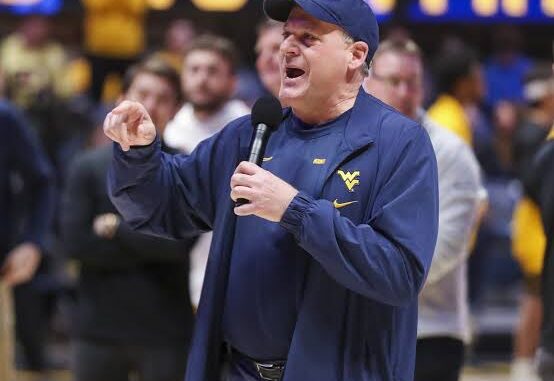
West Virginia Head Coach Rich Rodriguez Bans Players from Dancing on TikTok
MORGANTOWN, W.Va. — In a decision that has sparked debate among fans and players alike, West Virginia University head football coach Rich Rodriguez has officially banned his players from posting dance videos on TikTok, citing concerns about discipline, focus, and the public image of the program.
Rodriguez, who returned to Morgantown in a surprise move to lead the Mountaineers once again, made the announcement during a team meeting last week. According to sources close to the program, the policy comes as part of a broader push to instill a “back-to-basics” culture and eliminate what Rodriguez views as distractions to the team’s ultimate goal: winning football games.
“Playing football at this level requires complete focus, discipline, and commitment to the team,” Rodriguez reportedly told players. “We’re not here to build followers—we’re here to build a championship team.”
While the move may seem drastic to some, Rodriguez’s coaching philosophy has always leaned heavily on structure and accountability. The ban specifically targets choreographed dances on TikTok, which the coach believes have become a growing distraction during practice and even in the locker room. Team staff noticed a sharp uptick in social media activity during the offseason, prompting concerns that the program’s culture was shifting away from football fundamentals.
Supporters of the decision argue that the new policy reflects Rodriguez’s old-school mentality and commitment to team success. Several alumni and former players have voiced their support online, recalling the discipline and intensity that defined Rodriguez’s first tenure at West Virginia from 2001 to 2007. During that period, the Mountaineers enjoyed some of their most successful seasons in program history, including multiple Big East championships and BCS bowl appearances.
However, not everyone is on board with the decision. A few players have expressed frustration privately, noting that TikTok is a primary way for them to express themselves and connect with fans. In today’s NIL (Name, Image, and Likeness) era, where social media presence can directly impact a player’s financial opportunities, some argue that restricting content creation could negatively affect athletes’ ability to market themselves.
“I understand where Coach is coming from, but it feels like a step backward,” said one player anonymously. “We’re not trying to disrespect the team. Sometimes, it’s just a fun way to blow off steam.”
Rodriguez has said the policy is not permanent but will be reviewed periodically. For now, players are still allowed to use social media and even post football-related content—as long as it aligns with the team’s image and standards.
The controversy has reignited a broader conversation in college sports: how much control should coaches exert over their players’ online behavior? As programs continue to evolve with the digital age, striking a balance between discipline and self-expression remains a tricky challenge.
Whether or not the TikTok ban leads to more wins this season remains to be seen. But one thing is clear: Rich Rodriguez is making it known that in his program, football comes first—and dancing, at least for now, will have to wait.



Be the first to comment